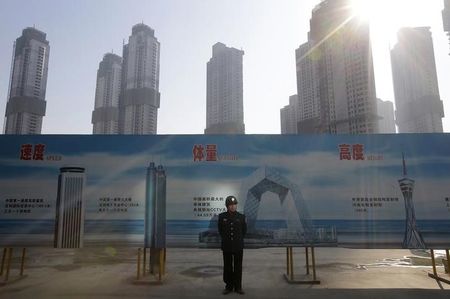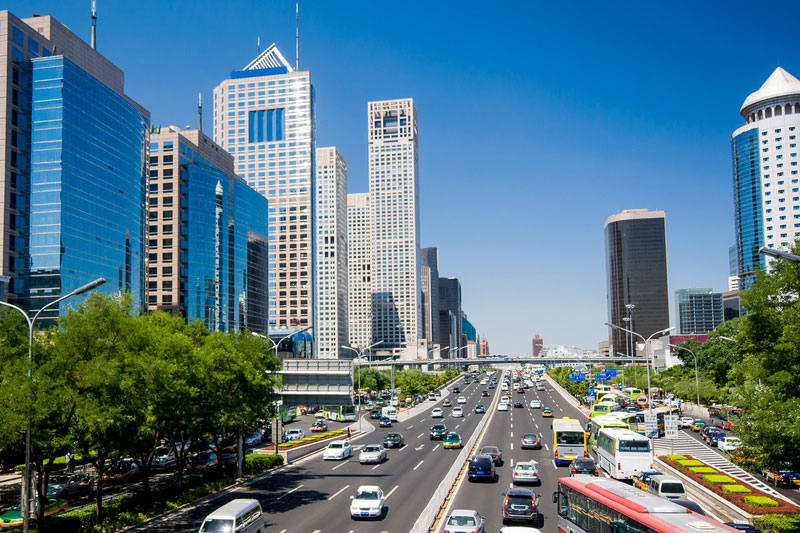HONG KONG/BEIJING (Reuters) - Data showing that the Chinese economy quickly lost steam in August caused some economists on Monday to trim their 2014 growth forecasts for the country.
UBS shaved its full-year forecast to 7.2 percent from 7.3 percent. Barclays Capital reduced its projection to 7.2 percent from 7.4. ING cut its forecast to 7.4 from 7.5 percent.
Over the weekend, data showed factory output grew at its weakest pace in nearly six years in August while weaker readings in investment, retail sales and imports revealed a picture of an economy struggling to gain momentum despite recent stimulus steps.
"Our downward revision is based on our belief of a shift in the government's attitude and it is now less focussed on achieving the 7.5 percent growth target," analysts at Barclays said in a note.
The slowdown in the data also indicated banks are getting cautious about lending, especially with the backdrop of mounting pressure on company balance sheets and an entrenched slowdown in the property sector, a key engine for economic growth.
China's total social financing aggregate, a broad measure of lending in the economy, was 957.4 billion yuan (95.3 billion pounds) in August versus 273.1 billion yuan in July, which was the weakest in nearly six years, data showed last week, indicating credit levels were far below average.
Recent comments by top Chinese policymakers hinted the government was bracing for a period of slow growth. Premier Li Keqiang said last week China cannot rely on loose credit to lift its economy, adding that it is difficult for the country to avoid short-term fluctuations in growth.
While the latest batch of data adds pressure on the central bank to loosen monetary policy, economists believe Beijing would be reluctant to roll out any massive headline measures such as cutting interest rates and would prefer to resort to targeted small steps for now.
"With the help of net exports, GDP growth in 2014 can stay slightly above 7 percent," wrote economists at Gavekal Dragonomics, an economic research firm. "Nevertheless, it will miss the government's 7.5 percent target."

(Reporting by Saikat Chatterjee and Kevin Yao; Editing by Richard Borsuk)
